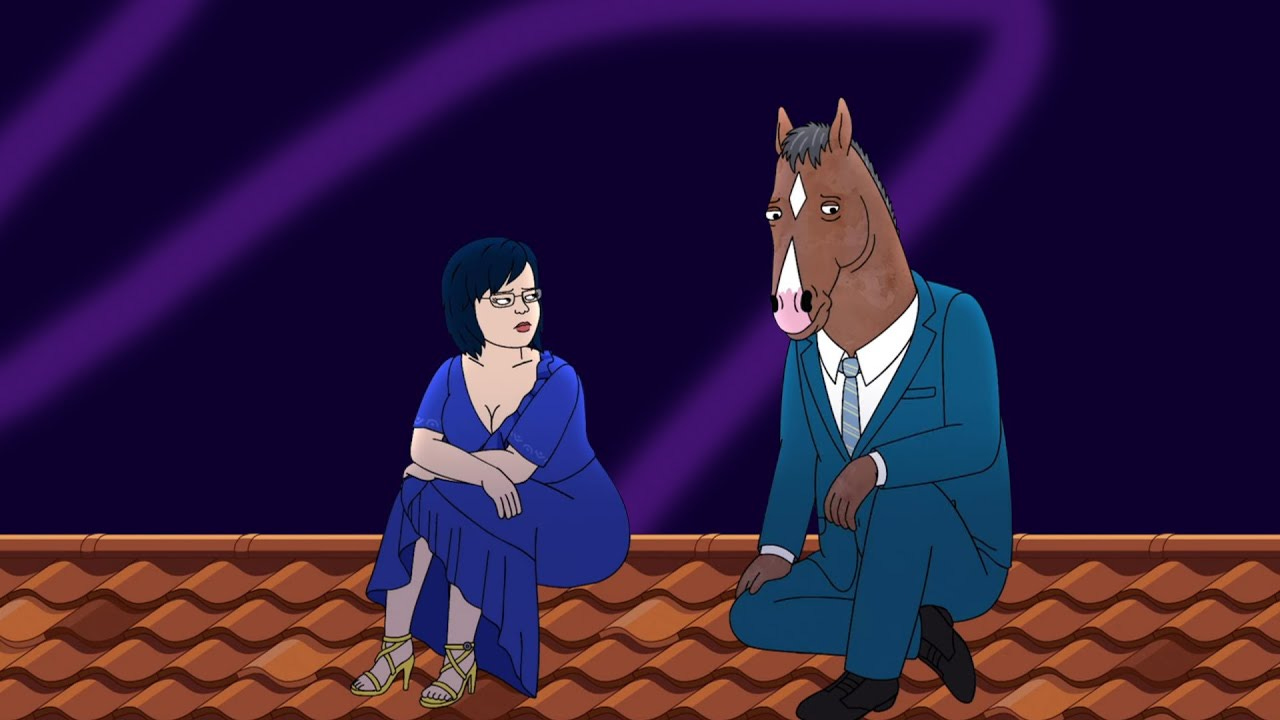The Limits of Ted Lasso Television
Empathy isn’t Easy: The Best Shows Recognize That
Discussed: Ted Lasso, BoJack Horseman, The Bear, kindness, empathy, antiheroes, prestige TV, moral complexity
Since it came out in 2020, Ted Lasso has gained a reputation for being one of the nicest shows on television. Fans rave that Ted’s sunny disposition is a welcome respite from “doomscrolling” and that the show’s emphasis on kindness is a balm for a world that feels increasingly cruel.
And yet, I find myself genuinely skeptical about whether Ted Lasso’s overwhelmingly cheerful arc from first to third season is actually kind. My concerns aren’t just about the ways the final season rushes to reach a happy ending with longer episodes that often feel unfocused and have storylines that feel tagged on. Rather, my reservations come from strange shift in the show’s moral compass, which continuously stresses forgiveness over actual accountability.
This is especially egregious in the show’s character arcs involving adult children and their abusive parents. Both Jamie and Nate have fraught relationships with their cruel and overbearing fathers that are genuinely heartbreaking. In the final season, rather than fully grapple with the complexity of abuse, both characters are quickly ushered through their grief into forgiveness. This pattern of eschewing emotional complexity for speedy resolution is seen through Ted’s relationship with his ex-wife as well. Even though part of Ted’s arc is getting comfortable expressing his true feelings and not simply being pleasant all the time, once he does express his pain about how his ex-wife handled their divorce, the series quickly moves to a neat resolution where Ted and his ex-wife are able to embrace a sunny future co-parenting.
In the world of Ted Lasso, it doesn’t matter that characters on the show demonstrate different aptitudes for personal growth and self-reflection. Once someone recognizes their trauma, they appear to seamlessly grow and become good. This is not just a matter of flawed pacing. By the third season, the show posits that all people, no matter how self-involved, or annoying, or even downright cruel, are just in need of a little tenderness. It's a fantasy version of empathy, one that might be seductive, but that ultimately refuses to acknowledge that not every cruel behavior deserves to be immediately absolved.
I would argue that darker, broodier shows often do a far better job exploring our capacity for emotional growth while also highlighting the ways that genuine compassion comes from acknowledging human complexity. BoJack Horseman, easily one of the most empathetic shows on television, is steadfast in its assertion that holding people accountable for their actions is often a kinder act than rushing to forgive. Over the course of six seasons, we are invited to understand BoJack’s personal story, but we are also forced to contend with the devastating impact that his actions have on his friends and loved ones. One of the clearest ways the show does this is through inviting us to empathize with BoJack and to also empathize with the many characters that BoJack has hurt. By the end of the series, we can still root for BoJack to become a better person, but also see that he deserves to lose several important friendships and relationships because of his behavior.
Likewise, one of the successes of The Bear, is that it allows us to thrill when characters succeed, but also understand that their emotional growth doesn’t erase their flaws. Richie’s arc over season two feels especially heart-warming precisely because it is presented as fragile and very much still in-progress. We watch as he thrives when given the opportunity to learn new skills and to interact directly with customers, but also see his impulsivity and rage is still simmering beneath the surface. The authenticity at the heart of The Bear comes from the show’s insistence that each person contains multitudes and that the hard work of emotional growth takes time.
Of course, one of the challenges with crafting any complex character is that viewers may very well miss the nuance. Ted Lasso’s fast resolutions are seductive precisely because they offer easy talking points about the value of taking care of your mental health and the importance of being kind. And, in some ways, this more didactic storytelling approach provides a bit of a respite from the deluge of antihero shows that run the real risk of fully glamorizing cruelty. But I also think the power of these shows is that they offer viewers the chance to expand our own capacity for holding two ideas at the same time. We might love a character and want them to change and also realize that true change may never come.
When I first started watching antihero dramas, I often found the emotional discomfort that came from watching a beloved character behave in cruel ways to be unbearable. Over the years, I find myself increasingly drawn to shows with imperfect and unlikable characters precisely because they provide an emotional space where I can grapple with big moral questions about how we treat each other. Ted Lasso’s third season may provide an easy upbeat closure, but it also robs of us of the opportunity to reckon with the complexities of empathy, to think about the way kindness can shape a person, but to recognize that cruelty can too.






